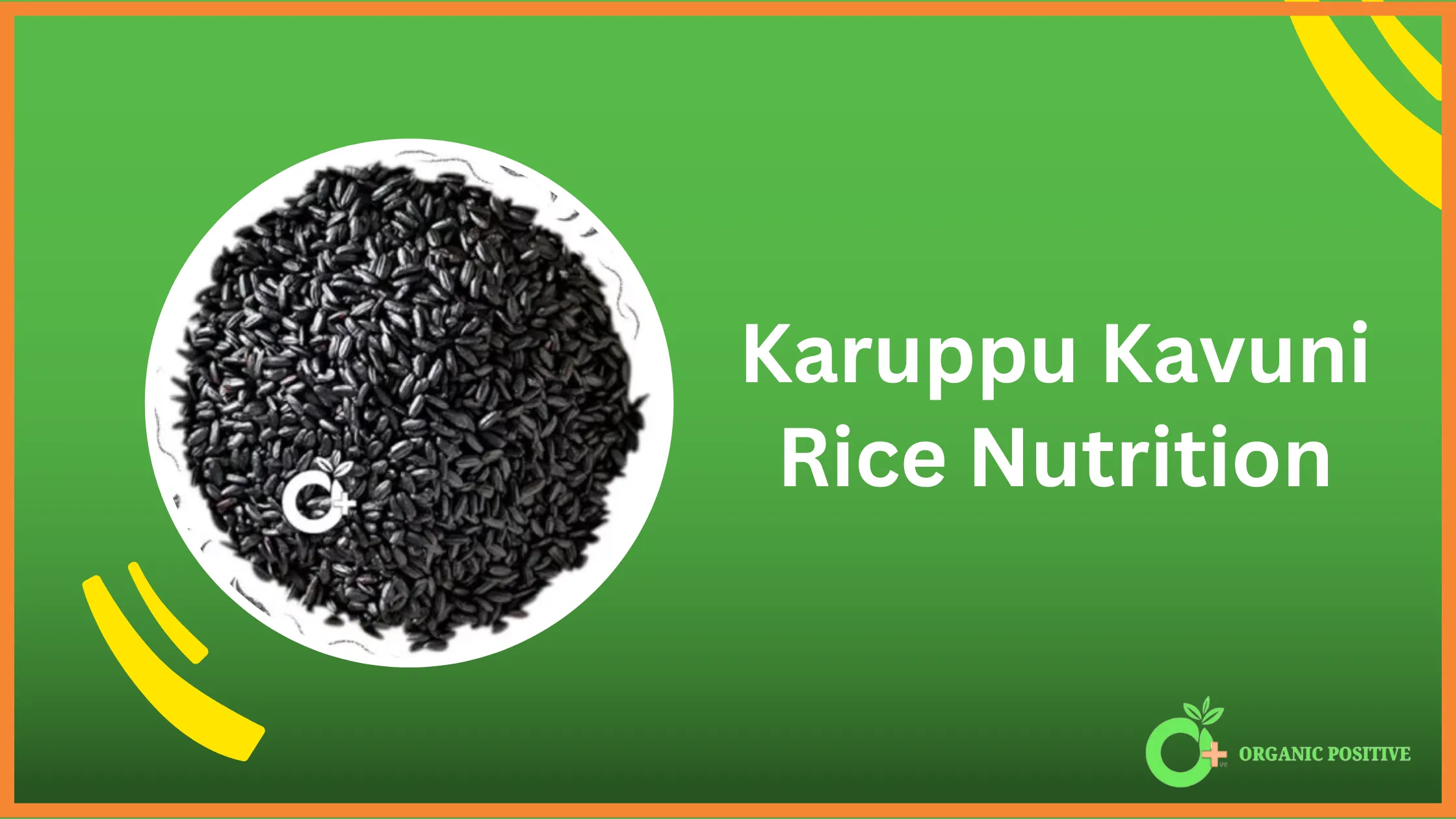karuppu kavuni rice nutrition
Karuppu Kavuni Rice also known as black rice and Forbidden black rice is an indigenous rice variety. It is popularly used in southern India and a few other countries like China, Korea, and Thailand.
Karuppu Kavuni Rice is widely popular for its exceptional health benefits, Karuppu Kavuni rice is filled with Dietary Fiber, Protein, Vitamins, iron, etc
Karuppu Kavuni Rice Nutrition table :
| Nutrient | Estimated Amount | Potential Range |
| Calories | 160-175 kcal | 150-180 kcal |
| Total Fat | 2-3 g | 1-4 g |
| Cholesterol | 0 mg | 0 mg |
| Sodium | 4-8 mg | 2-10 mg |
| Potassium | 250-300 mg | 200-350 mg |
| Total Carbohydrate | 34-38 g | 32-40 g |
| Dietary Fiber | 3-4 g | 2-5 g |
| Sugar | 0-1 g | 0-2 g |
| Protein | 5-7 g | 4-8 g |
| Iron | 0.8-1.2 mg | 0.5-1.5 mg |
| Vitamin E | 0.3-0.5 mg | 0.2-0.7 mg |
| Vitamin B2 (Riboflavin) | 0.1-0.2 mg | 0.08-0.25 mg |
| Vitamin B3 (Niacin) | 1.3-1.5 mg | 1.0-1.8 mg |
Karuppu Kavuni rice Benefits for Organs :
Karuppu Kavuni rice is filled with numerous health benefits, they provide a bunch of benefits to the various organs of our body
Here is the list of Health benefits of Karuppu Kavuni Rice
Heart Health: The antioxidants in Karuppu Kavuni rice can help in reducing cholesterol levels and maintaining healthy blood vessels.
Diabetes Management: Its high fiber content helps in the slow release of glucose into the bloodstream, which can be beneficial for people with diabetes by helping to control blood sugar levels.
Digestive Health: The dietary fiber promotes digestive health and prevents constipation.
Weight Management: The fiber content also aids in feeling full longer, which can help in weight management efforts.
Conclusion:
Including Karuppu Kavuni rice in your diet can be a nutritious choice, offering a variety of health benefits alongside its distinctive taste and texture. As with any food, it’s best consumed as part of a balanced diet.
Having said that, for any food moderation is the key, so if you’re gonna consume Karuppu Kavuni rice regularly it is advised to consult your medical professional.
Anti-inflammatory Properties: The anthocyanins have anti-inflammatory properties, which can reduce the risk of chronic diseases such as heart disease, diabetes, and certain cancers.
FAQ’s
1) How much protein is in 100g of black rice?
In 100 grams of black rice, there is approximately 3 to 4 grams of protein. This can vary slightly depending on the specific variety of black rice and the conditions under which it was grown. Black rice, including varieties like Karuppu Kavuni rice, is not just prized for its protein content but also for its high levels of antioxidants, dietary fiber, and other nutrients.
2) Is black rice rich in protein?
Black rice, with about 3 to 4 grams of protein per 100 grams, is considered moderately rich in protein for a grain. While it’s not as high in protein as some legumes or meat products, it contributes to protein intake, especially when part of a varied diet. Its nutritional profile is enhanced by its high antioxidant content and dietary fiber, making it a nutritious addition to meals.
3) Is black rice kidney-friendly?
Black rice is generally kidney-friendly due to its moderate protein content and high antioxidant levels. It’s suitable for those without advanced kidney issues when consumed in moderation. Consulting with a healthcare professional for personalized dietary advice is always recommended.








Leave a Reply